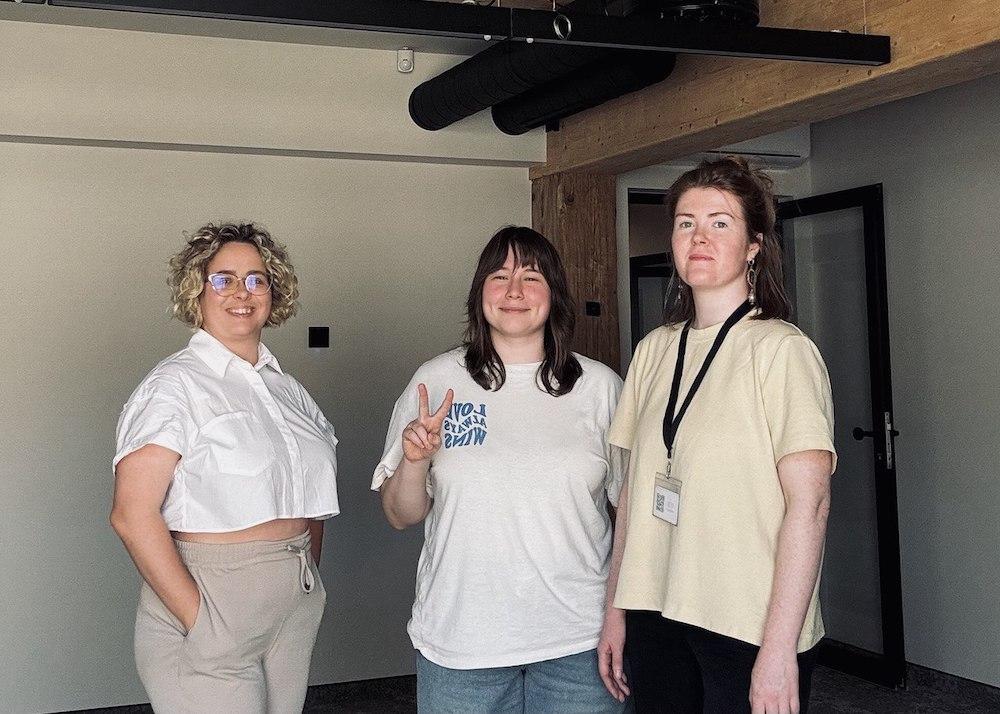Health technology startup VReach's augmented reality solution makes neurocognitive therapy more effective and improves the patient experience, according to a research study.
VReach recently conducted a research study to investigate and prove the effectiveness of the company's solution in therapy. Both the effect of the product on the patient's behavior and the possibilities of the objectification of the therapy were investigated, because currently the therapy is generally subjective and depends on the interpretations of the specialist who works with the patient.
During the research, the product was continuously tested together with various specialists and user groups. Feedback was obtained during the tests - the team is happy that the healthcare professionals are satisfied and there are positive feedbacks from the families.
Effectively helps to improve skills
The study confirms that the startup's solution makes therapy effective thanks to the data available on the platform.
"The study showed that our platform effectively helps children with various disabilities to improve various skills, and the results are very noticeable already within the first 10 lessons," said Marina Petrakova, co-founder of VReach.
The data from the study will also bring international visibility as many of the world's researchers and entrepreneurs try to improve the fragmented health care system. “We're the first to have a proven solution that solves a number of significant problems,” she adds.
Easier contact with the patient
The study confirmed that with the help of "VReach" the specialist can quickly establish contact with the patient, as well as effectively cooperate with the patient over a long period of time, because, as Marina explains, traditional therapy usually has difficulty keeping the patient motivated.
The research will also be useful in educating new professionals, giving them the opportunity to use technology in improving the quality of life of their clients. “The study further contributes to the digitization of health and patient-centered care. Also, the quality of work of health care system professionals is promoted, as well as the improvement of their quality of life, which is just as important as improving the quality of life of patients," adds Marina.
The solution has already helped 1000 people
So far, more than 1000 patients and 50 specialists have tried the VReach solution.
"Active and high demand continuously validates how important VReach is as a solution to these problems already," says Marina.
Working on investment attraction
"VReach" plans to attract investments in the near future. In this investment round, the team plans to raise 600 to 750 thousand euros.
"We actively continue to look for value-based investments, because as a health and impact technology startup, we want to solve pressing problems with like-minded partners," said Marina.
Also, the team continues to work on expanding the team, conducting research, developing the field of digital health in Latvia, as well as efforts to make the product even more accessible to those who need it.
Makes neurocognitive therapy more effective
Today, VReach is a global cross-platform solution that uses augmented reality technology and data to make neurocognitive therapy more effective and improve the patient experience. The solution is intended for neurodiverse people, such as patients with autistic spectrum disorders.
The beginnings of "VReach" can be traced back to the commercialization course of the Computer Science Faculty of the University of Latvia. Later, the idea was developed in the pre-incubation program of the Creative Industries Incubator of the Investment and Development Agency of Latvia, where Marina met Kristiāna Kārkliņa, with whom she currently continues to manage the start-up. The team also participated in the acceleration program "Overkill Ventures" and has also received the support of the Riga City Council grant program "Atspēriens".
The original idea was to create a virtual reality experience that would help children with autistic spectrum disorders coordinate their eye and hand movements. On the way to this, a rehabilitation solution based on virtual reality technology was developed, which helps children with various functional disorders.
Currently, the startup focuses on the rehabilitation of neurodiversity conditions not only for children, but also for adults.
The solution is "packaged" in virtual reality glasses, in which a specialist from the app gives the child various tasks with the aim of developing various skills. For example, children with autism spectrum disorders have a strong aversion to bright lights, sounds, etc. Glasses separate these irritants and allow you to focus on developing specific skills.
The technology has several parts. One is what the child sees in the glasses. The content is specially adapted for children with different disorders to receive different irritants in a harmless way, and the specialist can assess the reaction to them. The second is an app intended for a medical specialist, and the third is a data analysis offered by the company. "As a technology company, we acquire data, 'translate' it and give it to a specialist so that he can draw conclusions and adjust future therapy," explains Marina.
Photo: "VReach" team Marina Petrakova, Alice Tsukova and Kristiana Karklina Publicity photo
